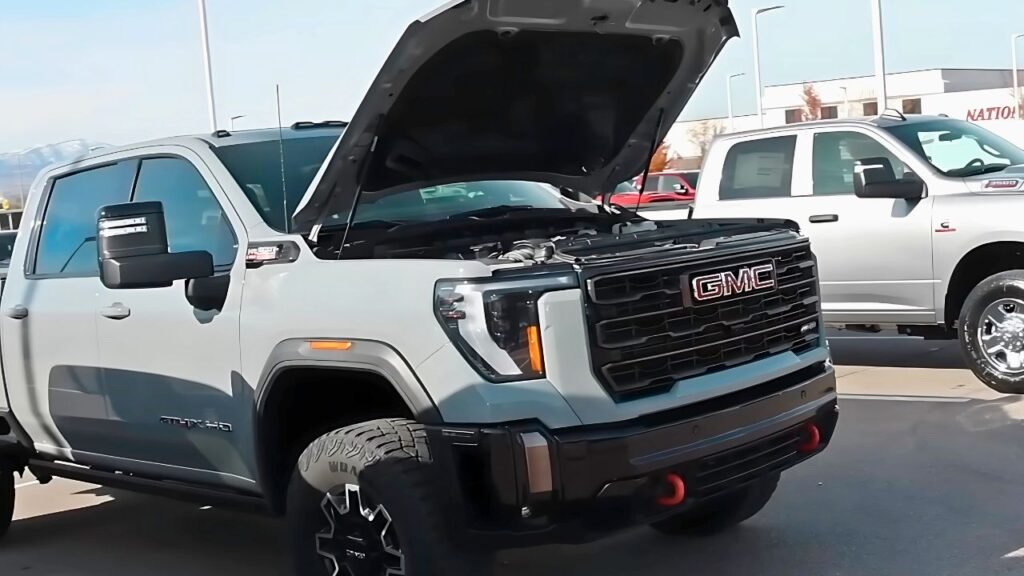Diesel engines have long been celebrated for their reliability, longevity, and efficiency. However, the landscape has evolved significantly, especially with modern diesel trucks. While they boast impressive power and fuel economy, they come with complexities that require careful attention. If you own or plan to buy a diesel truck, this guide dives into the key challenges and maintenance tips for keeping your vehicle in top shape.
Why Modern Diesel Engines Differ from the Past

Diesel trucks of the ’90s and early 2000s were simpler and more robust in design, often running for hours without issues. Fast-forward to today, and modern engines incorporate advanced emission systems like Diesel Particulate Filters (DPFs) and Exhaust Gas Recirculation (EGR) systems. While these innovations reduce environmental impact, they also add layers of complexity and potential points of failure.
The Silent Killer: Diesel Fuel Dilution
One of the most pressing issues with modern diesel engines is fuel dilution. This occurs when diesel fuel mixes with engine oil, reducing its viscosity and effectiveness as a lubricant. Over time, this can lead to increased wear, overheating, and potentially catastrophic engine failure.
How Does Fuel Dilution Occur?
- Blow-by: Small amounts of fuel and exhaust gases escape past the piston rings into the crankcase, where they mix with engine oil.
- Cold Starts: In cold weather, combustion chambers take longer to reach optimal temperatures, causing incomplete combustion and more unburned fuel.
- DPF Regeneration: During a DPF regen cycle, extra fuel is injected to burn off soot in the exhaust system. This process can lead to unburned fuel seeping into the oil.
- Wet Stacking: Prolonged idling or running the engine at low temperatures can cause unburned fuel to accumulate, further increasing fuel dilution.
Why Fuel Dilution is Dangerous
Fuel dilution lowers engine oil viscosity, compromising its ability to lubricate critical moving parts. This can result in excessive wear, higher operating temperatures, and eventual engine damage.
How to Combat Fuel Dilution

1. Monitor Oil Quality
Regular oil analysis is essential. Specialized labs can detect fuel dilution levels and recommend whether an oil change is necessary. If you’re running synthetic oil like 5W-40, this becomes even more critical.
2. Warm Up Your Engine
Cold engines are more prone to fuel dilution. Always let your diesel warm up before driving, especially in cold climates. Consider using an engine block heater to maintain operating temperatures in freezing conditions.
3. Follow Maintenance Schedules Religiously
Modern diesel trucks typically recommend oil changes at intervals of up to 15,000 miles. However, for trucks exposed to excessive idling, city driving, or heavy towing, shorter intervals (e.g., 5,000-7,500 miles) are advisable.
4. Avoid Excessive Idling
Prolonged idling can exacerbate wet stacking and fuel dilution. If you must idle, use high-idle settings available on many trucks, like RAM’s customizable high-idle feature, to maintain optimal combustion temperatures.
5. Choose High-Quality Modifications
Aftermarket tuners and modifications can affect combustion efficiency. Always work with reputable professionals to ensure your truck’s systems are properly calibrated.
Other Maintenance Tips for Diesel Trucks
- Use the Right Oil: Stick with manufacturer-recommended oils (e.g., 10W-30 or 15W-40). Conventional or synthetic options are available depending on your driving conditions.
- Monitor DPF and EGR Systems: Regularly inspect these systems to ensure they’re functioning correctly and not leading to excessive fuel dilution.
- Inspect Glow Plugs or Grid Heaters: These components aid in starting diesel engines in cold weather. Ensure they’re functioning to prevent unburned fuel during startups.
- Install Upgraded Oil Pans: Some aftermarket options, like the Banks oil pan, ensure better oil drainage, reducing leftover contaminants during oil changes.
The Downside of Modern Diesel Systems
While modern diesel trucks are powerful, efficient, and clean, they also require meticulous maintenance. Advanced emissions systems like DPFs and EGRs can inadvertently contribute to long-term reliability issues, particularly for owners unaware of their impact.
The additional costs of regular oil analysis, more frequent oil changes, and potential repairs make owning a diesel truck less straightforward than in the past. For those considering a diesel truck, it’s essential to weigh these factors against the benefits of torque, towing capacity, and fuel efficiency.
Our Final Thoughts
Owning a modern diesel truck requires a proactive approach to maintenance and a solid understanding of its unique challenges. From fuel dilution to emission system upkeep, staying ahead of potential issues can save you thousands in repairs and extend your engine’s lifespan.
If you’re new to diesel trucks or looking to maximize reliability, consider these steps:
- Perform regular oil analysis.
- Use an engine block heater in cold climates.
- Warm up your engine and avoid excessive idling.
- Follow manufacturer maintenance schedules rigorously.
Diesel engines remain a powerful option, but they demand informed ownership to truly shine in the long run.
Have thoughts or questions about modern diesel engines? Share them in the comments below!


